What are the uses of getting a CT-Angiogram done? After learning about CT angiogram , also known as computed tomography...
CT Angiography Diagnosis and much more…CT Angiography Diagnosis and much more…


What are the uses of getting a CT-Angiogram done? After learning about CT angiogram , also known as computed tomography...

Understanding CT-Angiogram What is CT-Angiogram? A CT-angiogram of the heart, commonly referred to as cardiac CT angiography, is a sophisticated...

How Sprouts Help to Improve Your Health Boosting Your Nutrient Intake and The Key to Better Nutrition In my last...

Introduction to Sprouts and Their Importance A Guide for Vegans and Health Enthusiasts on how to use a variety of...

FEVER FAQs (contd.) In my previous article I covered the types of illness and the causes. In case you have...

Hello friend, I am sure that you must have suffered umpteen times with high body temperature aka fever. In this...

Learn about Iodine, Selenium, and Zinc and Their Effects on Thyroid Hormones—Plus Practical Tips for Dietary Management Introduction to Thyroid...

Nutritional Value of Processed Foods: Are They Worth It? Listen to article- Having learnt about processed foods in my earlier...

Processed foods refer to any food item that has been altered from its original form, typically for safety reasons or...

Severe backache is a common ailment that affects individuals across various age groups and lifestyles. It can arise from...

What is Edema? Edema refers to the medical condition characterized by the accumulation of excess fluid within the body’s tissues,...

….. and Improve Your Wellbeing Listen to this article- Scroll down as you listen Introduction to Herbal Medicines Hello friends,...

Introduction to the Benefits of Green Tea Listen to this article- A few days back, one Medical Rep from the...

Shortness of breath, medically referred to as dyspnea in the medical field, is a common yet distressing condition characterized by...

In my last post on this topic, I discussed 4 organs that help manage blood sugar. In this article, we...

And Contribute to Hyperglycemia Introduction to High Blood Sugar Levels [Hyperglycemia] In the past, I have posted articles on impaired...

Understanding Chronic Obstructive Pulmonary Disease (COPD)-: Causes, Symptoms, Treatment, and Complications Dear friends, Welcome to an informative article on Chronic...

Fresh and Nutritious with Considerations Introduction In my last article, we discussed the first of the 6 popular vegetaables- broccoli,...

Introduction: In my last article on olive oil, I mentioned that I will be writing about some food items that...

Introduction We all love to eat tasty food but tasty food is not always healthy. Like our children, who sometimes...

Introduction In my last article, I described in detail what is Percutaneous Transluminal Coronary Angioplasty or PTCA. In this article...

Introduction to Percutaneous Transluminal Coronary Angioplasty (PTCA) Imagine you getting a mild chest pain, a few burps and you feel...

Procedure, Indications, After-Effects, and Other Applications Indroduction Let’s imagine someone close to you is having chest pain. He is taken...

Tofu: From Ancient Origins to Modern Delicacy Introduction Has anyone heard about a super food called Tofu? Well, if not,...

The Different Types of Sleep Apnoea and Their Impact on Health Introduction Sleep apnoea is a common sleep disorder that...

Understanding Bronchoscopy and Thoracoscopy: 2 valuable tools for Lower Respiratory Tract Diseases Diagnosis Exploring Diagnostic Procedures for Respiratory Conditions:- Listen...

Introduction In my recently concluded article, I wrote about endoscopy of the GI tract and its uses. At the end...

Learn all about these 3 powerful scopes used in field of medicine and their applications in our digestive system In...

Have you ever sometimes felt like your heart is ‘fluttering’ or like it is on a roller-coaster ride? If no,...

Introduction In my last article on Exotic Fruits- Part 1, I discussed fruits from Asia and South America. In today’s...

Introduction Hello friends, My last article was on adding 5 spices to our diet to improve our metabolism; now, in...

Spice Up Your Health Journey: Discover the 5 Top Metabolism-Boosting Spices for a Slimmer Waistline Spices have been used for...

What is hypertension? In my last post, I tried to impress upon you why uncontrolled hypertension is important from the...

In my last article, I discussed what acute kidney failure is, its causes, signs and symptoms and complications. Now, in...

Introduction In the recent past, I have written posts on Chronic Kidney disease and Diabetic Nephropathy or Kidney disease. Now,...

Introduction-Investigating the Overlapping Traits In the aftermath of the global pandemic, the question of whether COVID-19 can coexist with seasonal...

Introduction Appendicitis is a condition characterized by inflammation and infection of the appendix, a vestigeal part of the digestive system,...

Introduction Bloating and farting are common digestive issues that many people experience. Bloating refers to the feeling of fullness and...

Introduction Are you aware of a condition called the frozen shoulder? If not, let me explain it in short by...

Are you or someone you know experiencing persistent lower back pain? It could be a sign of lumbar spondylitis, a...

INTRODUCTION Are you experiencing neck pain, stiffness, and numbness? It could be a result of cervical spondylitis, a common condition...

Introduction Hello, friends and knowledge-seekers! Today, we will learn and dig into the world of alcohol drinking and uncover its...
Discover the Science Behind Enhanced External Counter pulsation It is natural for any patient with heart disease, especially having been...

Using Smart Scales: Manage Metabolic Age, Skeletal Mass, Muscle Mass, Body Fat, and Beyond Step into the world of smart...

What is Body Fat? Are you tired of stepping on the scale and not getting the full picture of your...

Coping Strategies and Self-Care for Individuals with Vitiligo In my last article, I described what vitiligo is and some of...

Empowering Individuals with Vitiligo and Celebrities: Inspiring Stories of Resilience and Self-Acceptance, Including Models with Vitiligo What is a Skin...

Exploring the Causes and Solutions for Skin Patchiness In my clinic, I frequently encounter patients with blemishes on their skin...

What your Fingernails tell you Did you know that your fingernails could hold important clues about your overall health? It...

Sources of Essential Minerals in the Diet In my previous article published on 5th December 2023, we had discussed a...

Introduction In the quest for a healthy body, we often focus on exercise and a balanced diet, but there’s another...

Managing Anemia through Diet and Nutrition In my recently concluded article, I had described different types of anemia. Here is...

Are you feeling constantly fatigued and weak? Do you feel tired while doing some work, even as easy as reading?...

Glaucoma: All You Need to Know about Types and Effective Ways to Manage Them Glaucoma is an eye disease that...

Introduction to Body Mass Composition In my medical practice, I come across many patients—some are skinny, some are overweight, and...

Understanding Diabetic Neuropathy Diabetic neuropathy is a nerve disorder caused by long-term uncontrolled diabetes, resulting in symptoms like numbness, tingling,...

What is Diabetic Nephropathy? Diabetic nephropathy, often referred to as the silent thief, is a progressive kidney disease that affects...

Types, Causes, Symptoms, and Treatment of Diarrhea and Dysentry Have you recently suffered from a bout of loose motions that...

Epilepsy-Understanding the Causes, Symptoms, and Diagnosis Signs, Investigations, Complications,Treatment Options and Prevention Strategies Epilepsy, a neurological disorder affecting millions worldwide,...

Everything You Need to Know About Electrocardiograms: FAQs and More Are you familiar with electrocardiograms (ECGs)? If not, don’t worry...

What is Dyspepsia or Acid-peptic disease? Dyspepsia is a general term that refers to the sensation of having an upset...

What You Should Know about Echocardiography and Why It Matters What is echocardiography or ECHO? Echocardiography or ECHO in short,...

Part 2- Diagnosis, treatment, complications and prevention of retinal detachment In my previous article in Part 1 of this series,...

Part 1- What is retinal detachment and what are its consequences Welcome to a comprehensive guide on understanding retinal detachment!...

Interpreting abnormal results in hematology tests While understanding the normal range for hematological parameters is crucial, interpreting abnormal results is...

Understanding Normal Hematological Test Values and Detecting Abnormalities for Early Disease Detection Welcome to the fascinating world of hematology! In...

Pneumonia- what is it, it’s signs and symptoms, complications, treatment and prevention Our lungs can be subject to various ailments....

Every year on August 1st, the world comes together to mark World Lung Cancer Day, a global initiative aimed at...

Have these 10 calcium rich foods to get healthy bones and body You may not get enough calcium from your...

In my last article prior to this one I said that my next article will be on Vertigo and Meniere’s...

Inner Ear Disorders In my previous article on the ear and its diseases, I had mentioned two common disorders of...

In my last article, I described all about infections of the nose and throat. In this article we will learn...
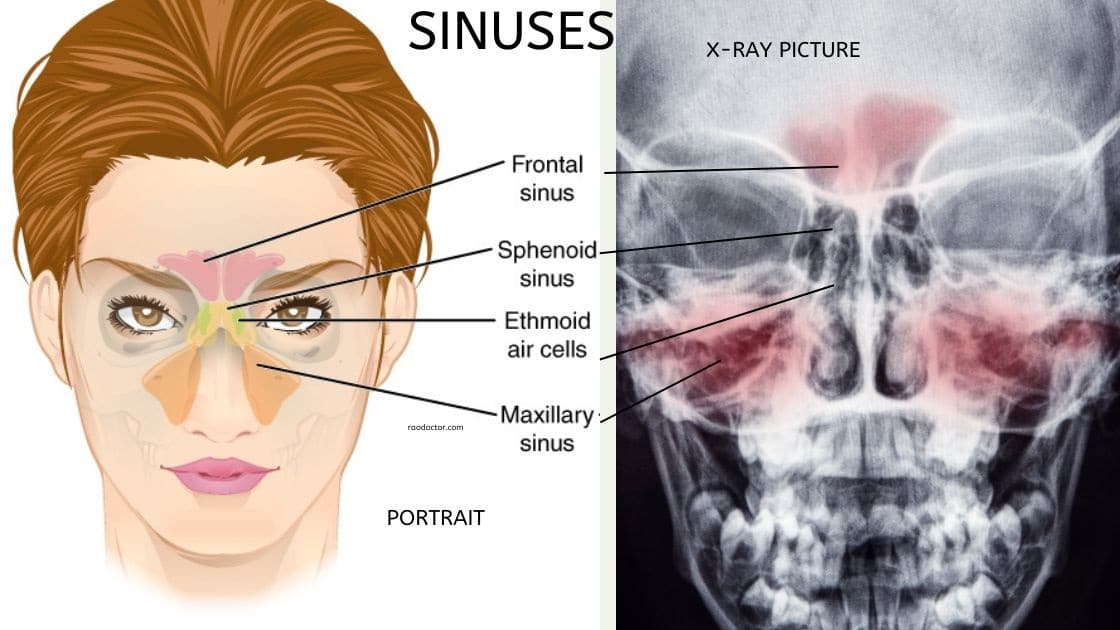
Introduction to Common Diseases of the Nose and Throat Our upper respiratory tract is made up of the nose, throat...

Are you tired of battling the effects of obesity and the toll it takes on your health and well-being? Break...

Introduction In today’s fast-paced world, medical imaging has become a crucial aspect of healthcare. It allows doctors to diagnose diseases...

In my previous article, I discussed in general different allergies that one can suffer from. Here, in this article we...

Know all about allergies, its sign-symptoms, types and much more Allergies are your body’s reaction to a foreign substance that’s...

10 Super Powerful Natural Antioxidants that are available to you in your food plate Nature has a way of providing...

What is constipation? In my last article, my final words were that my next article will be on a condition...

Do you ever experience discomfort or pain in your anal region? If so, you may be suffering from an anorectal...

In my last article, I discussed five of the 11 plant-based proteins. Now in this article we will learn all...

Image source-Canva Pro The Rise of Plant-Based Proteins: Are We Seeing a Shift in Diet Preferences? What prompted me to...

Understanding Heel Pain and Plantar Fasciitis Have you ever suffered from pain in the sole of your foot? If yes,...
![Deep Vein Thrombosis [DVT] 87 Featured image showing deep vein thrombosis and normal leg veins](https://raodoctor.com/wp-content/uploads/2023/04/DVT.jpg-300x169.jpg)
Deep vein thrombosis (DVT) is a condition that occurs when a blood clot forms in one of the deep veins...

A stroke leaves behind a few disabilities in an affected person, depending upon the site of brain that has been...

Strokes are one of the leading causes of death worldwide. According to the Centers for Disease Control and Prevention, nearly...

Fungal skin infections are very common in humid places as well in those who sweat a lot. With proper knowledge,...

Psoriasis is a disorder where the body produces too many skin cells. These skin cells grow abnormally and are shed...

Include these 4 spices to improve the taste of your dishes as well as your health The last of 4...

Realign Your Big Toe and Regain Your Foot Health with Hallux Valgus treatment The hallux is the big toe, which...

Add cloves, cumin, coriander and mustard to make your meals tastier In my very first article on spices, I mentioned...

Add Turmeric, Ginger, Cinnamon and Cumin to your food to “Spice up your life” In my last article, I introduced...

What are spices? Spices, also known as condiments, are dried flowers, fruits, seeds, bark, or roots used to add flavoring,...
![11 Gastro-intestinal [GI] diseases for you to know for living a healthy life 97 Picture showing various gastro-intestinal diseases](https://raodoctor.com/wp-content/uploads/2023/02/GI-diseases-2-300x169.jpg)
What is Gastro-intestinal disease? Gastro-intestinal disease is an affliction of your digestive system starting from your mouth to the anus....

Learn all about them here In my last article on Hernia Surgery, I had made a closing remark that my...

Learn all about different hernia surgeries A hernia occurs when an organ pushes through an opening in the muscle or...

Signs, Symptoms, Treatment and Prevention Listen to this article A hernia is a condition that occurs when an organ or...

Frequently Asked Questions and Answers Introduction Coronary artery bypass graft (CABG) is a complex procedure that is often used to...

10 Cardiac Markers That Could help you avert a Heart Attack Introduction A heart attack can happen in any person...

Causes, signs, symptoms, complications and treatment In my last article on Vitamin B12, I had mentioned at the end that...

Vitamin B12 is an essential nutrient for human health and well-being. It is a water-soluble vitamin found naturally in animal...

Women are the pillars behind the success of our lives.They serve as a wife, a daughter, a mother, a grandmother...

Parkinson’s Disease: Everything You Need to Know and How to Manage It After the diagnosis of Parkinson’s Disease, it’s hard...

Chronic kidney disease (CKD) is an extended illness that can be caused by several varying factors, ranging from basic dehydration...

Kidney disease is a major health problem in the world today. More than 10% of the population worldwide, that is...
![How to Match Your Biological and Your Chronological Age [Ultimate Guide] 109 Biological age vs chronological age](https://raodoctor.com/wp-content/uploads/2022/12/Add-a-subheading-11-300x300.jpg)
Unlocking the Secrets to Looking and Feeling Young: Looking and feeling young is a state of mind that many of...

Part-2 Introduction Nuts are a great source of nutrition for people of all ages and lifestyles. They are a delicious...

A Guide to Their Symptoms, Investigations and Treatment Listen to this article You might think a cancer diagnosis is...

Cancer Basics: 10 Signs of Cancer You Shouldn’t Ignore to live a better life Listen to this article- What is...

Listen to this article- Why am I writing about Memory? Memory is a very important part of our existence. Without...

In my last article on Kidney Stones, I made a closing remark that my next article will be on Overactive...

Learn all about kidney stones and how they can affect you Listen to this article- Kidney stones are small, hard...

Learn more about the remaining 4 essential vitamins in this article In my last article, I had discussed 5 out...

9 Essential Vitamins That Are Crucial for Your Good Health Part-1 People who lead hectic lives tend to have...

Urinary Tract Infections Image Source: Freepik Designed on Canva Pro Listen to this article Urinary tract infections (UTIs) are...

How to interpret your urine analysis Your kidneys produce urine, and this urine is an excellent indicator of your current...

Image source- FreePik.com Your Kidneys Are the Doorways to a good health What do I exactly mean by this statement?...

If You’re Sixty-Plus The blissful state of wedded bliss can be challenged by the stressors of everyday life but can...

Image Source: FreePik Designed on Canva Pro Listen to this article, click the audio button below- Introduction Osteopenia, osteoporosis and...

Would you like to listen to the article first? Click this link- BMD Bone Mineral Density Bone mineral density an...

Would you like to listen to this article first? Keeping your bones strong and healthy throughout life is an important...
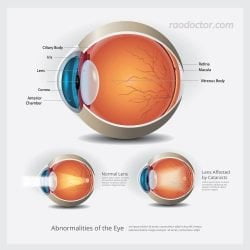
What your eyes reveal about your age Would you rather listen to the article first? Then click this link- Eyes...
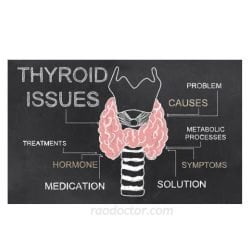
The thyroid gland is another very important gland in our body after the pancreas. It is also known as the...

Introduction Image source-FreePik What is hyperthyroidism? What are the symptoms and side effects of hyperthyroidism? If you have been diagnosed...
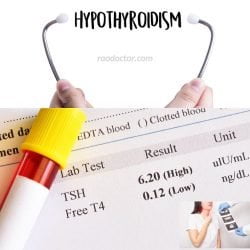
Image Source: FreePik Sheela Nayak came to my clinic with complaints of extreme tiredness, breathlessness, swelling of legs and feet,...

What is Hashimoto’s disease? Do you prefer listening to the article? Then please click the audio below- Hashimoto’s disease is...

Gliptins- what are they and how do they help in diabetes Listen to this article while you scroll down- The...
![Delayed Onset Muscle Soreness [DOMS]-how to overcome this 137 Aerobic exercise to reduce biological age](https://raodoctor.com/wp-content/uploads/2022/12/raodoctor.com-7-300x300.jpg)
Delayed Onset Muscle Soreness [DOMS] Listen to this article while you scroll down- Mr. Vijay, a patient of mine visited...

And How to Get Rid of Them Video Source: Canva Pro Before you start reading the article, how about listening...

Image Source: Canva Pro Backache or Sciatica- which one do you have? Are you suffering from backache? Does it hurt...

And live a healthy life By Dr. K. P. V. Rao Image Source: Canva Pro Introduction In my last article...

Hypertension: The Most Comprehensive Guide to Understand and...

Introduction Before we start, if you like to hear about cluster headache, listen to this audio that I have created...

What is a Tension Headache? If you wish to hear bout tension headache before reading you can listen to...

Listen to this Article Listen to “Migraine Headaches” on Spreaker. Migraine headaches There are so many types of headaches and...

Everyone gets headaches from time to time, and for many people they’re a regular part of life. For example,...

Image Source: FreeImages 10 Best Seeds and Nuts Varieties to Keep You Healthy- Part 1 Introduction- We all love to...

6 things About Bronchial Asthma You should know and how to treat it for good health Bronchial asthma is a...

Gout- 8 things You Need to Know About Your Symptoms and Treatment Introduction What is Gout? Gout is a form...

8 Vegetables and the benefits of eating them In my previous articles on Prudent Diet 1 2, I have made...

Diabetic Foot Disease-How to Prevent and Treat it Image Source: FreeImages Introduction People with diabetes tend to have an increased...

What is a minimally invasive direct coronary artery bypass? Introduction Minimally invasive direct coronary artery bypass surgery (MIDCAB) is a...

What is Acute Necrotizing Ulcerative Gingivitis [ANUG] Have you ever noticed anyone having swollen gums with bleeding points and foul-smelling...

DIABETIC FOOT DISEASE What is diabetic foot disease? Diabetic foot disease is a complication of poorly controlled diabetes. The picture...

The Best Drugs Used in the Treatment of Rheumatoid Arthritis: A Comprehensive Guide Drugs or medicines are the mainstay of...

Can yoga really help you get rid of pain and stiffness in Rheumatoid arthritis? A few days back, one of...

Introduction- Having a limited range of motion can make it difficult to do even simple tasks like reaching your hand...

Introduction Having discussed the ‘Good’ ,’Bad’, and ‘Ugly’ cholesterol in my last article, today we will learn the ways for...

INTRODUCTION Chikungunya is an arbovirus that causes acute febrile illness with fever, joint pain and swelling, muscle pain, nausea, and...

Hepatitis-Causes, Symptoms, and Treatment Options Introduction Hello everyone, On Saturday 9th July 2022, one patient visited my clinic with complaints...

How to diagnose, treat and prevent Typhoid Fever Introduction- Typhoid Fever is a disease caused by a bacteria called Salmonella...
![Diet in Rheumatoid Arthritis [RA]: 6 Facts To help you live A Healthy, Pain-free and Better life 171 What to eat and what not to in rheumatoid arthritis](https://raodoctor.com/wp-content/uploads/2022/07/DIET-IN-RA-250x141.jpg)
Rheumatoid arthritis is an autoimmune disease that causes chronic inflammation in the joints. There are some diseases of the...

How Dengue can affect you and your family-What you need to do to prevent it What is Dengue Fever? Dengue...

Treatment of Rheumatoid Arthritis: Massage- a practical way to get relief from pain and improve joint mobility Introduction In my...

Manage the Signs and Symptoms of Rheumatoid Arthritis-Care for your Joints Introduction In my last article, I discussed the signs...

Signs and Symptoms of Rheumatoid Arthritis – Are You At Risk? What is Rheumatoid Arthritis? Listen to this article as...

Diet is the second important part of aging gracefully. Eating together and having a wholesome or well-balanced diet ensures that...

Introduction Tip No.1 For Aging Gracefully with Diabetes-Exercise In my last article, I discussed the different complications of Diabetes and...

4 Great Tips for Aging Gracefully with Diabetes Aging is a natural process that everyone goes through, but, if you...

Fruits-13 must-have affordable ones with fantastic benefits for your good health(contd.) Part 2 Hello friends, welcome back to the second part...

Fruits-13 must-have affordable ones with fantastic benefits for your good health Part 1 Do you know that eating fruits in the...

Acute Common Bacterial Diseases Learn how to prevent these diseases and treat them if you get it After learning about...

2 Acute Common Diseases- Know How to prevent or Manage Them The different types of common diseases- There are two...
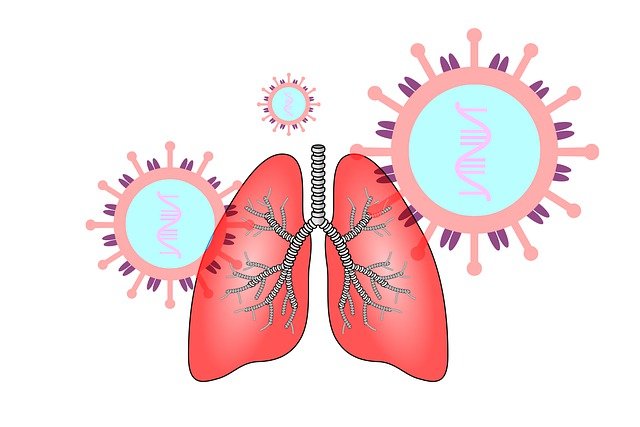
The Covid19 Pandemic:How to Adapt our Lives Now and Lead a Happy Healthy Life Would you like to lead a...

7 Best Ways for Prevention of Dementia and its Treatment -For Living a Better Cognitive Life Taking off from where...

Loss of Memory Part 2 What are the Investigations in Memory loss and how to get it done Introduction- Dementia...

10 Early Signs That You Are Heading Towards Dementia How to Prevent Loss of Memory and live a Healthy Cognitive...

How to Control Blood Sugar With or Without Medicines A patient who has been controlling his blood sugar very well...

Learn to prevent a heart attack and have a healthy heart Introduction Any heart disease is a very significant health...

Diabetic Retinopathy-How to avoid it and have a better vision What is Diabetic Retinopathy? In simple words, Diabetic Retinopathy refers...

Chest pain-how to know if you are having a heart attack Introduction Chest pain is something which we all must...

Introduction to Dietary Fats- How Having Healthy Fats Helps Your Heart and Improve Quality of Life After writing articles on Carbohydrates and...

Leptospirosis- Know How to Guard Against it and Stay Healthy Introduction- Leptospirosis is a water-borne disease that occurs in the...

How to have a Healthy Prostate and Live a Good Life Introduction- The Prostate gland is a gland present in...

MALARIA FEVER Introduction Malaria fever is only next to Dengue and chikungunya spread by mosquitos. In this disease, a female...
![Most Effective Ways to Treat Osteoarthritis [OA]-Stagewise 215 Osteo](https://raodoctor.com/wp-content/uploads/2020/06/osteo.png)
Most Effective Ways to treat Osteoarthritis [OA] – Medications In my last article on Osteoarthritis, I wrote about the preventive aspect...

Obesity-How to Measure It Introduction Obesity or being very fat has been on the rise by the day.In this article,...
Eat more Proteins and Live a Happy Healthy Life Introduction Proteins form an important part of the diet in a...

One of the best exercises I recommend to my patients is WALKING. You all must have heard the proverb”an apple...
Introduction- Osteoarthritis management is a challenge that most of us face while we are suffering from it. But it is...

With so many changes in lifestyle and food habits due to urbanization and fast food availability, those having diabetes are...

10 out of Twenty-one days Covid-19 India Lockdown It has been 10 days already of the twenty-one days of the...

21 Days of Covd-19 pandemic Lockdown in India- How will it help On 26th March 2020, a 21 days Covid-19...

How does the Covid 19 pandemic affect our routine life… ..and What should we do about it. Open any news...

What is Osteoarthritis? Osteoarthritis is a degenerative disease of our joints that causes them to lose their supporting cartilage. In...
![ORAL ANTI-DIABETIC DRUGS[ OADS] 241 Diabetes logo](https://raodoctor.com/wp-content/uploads/2020/07/Untitled-design-2.png)
Oral Anti-diabetic drugs[OADs] What are Oral Anti-diabetic Drugs? Oral Anti-diabetic Drugs[OADs] are those medicines that are given mostly to Type...

World Heart Day Hi Friends, Today is 29th September 2019- World Heart Day. At the outset, let me wish all...
Introduction Are you aware that insulin deficiency or excess is the main cause of getting diabetes? Absolute insulin deficiency causes...

4 Important Investigations To Show You If You Are Going In For Diabetes Introduction to Investigations in Diabetes Hello Friends,...
Know your diabetes and live a happy, trouble-free life Today, as I am writing this article, all over the world...
Causes and Types of Diabetes- it’s prevention and management Causes and types of diabetes Before we learn the causes and...

What is Diabetes Mellitus? Introduction About 3000 years ago, ancient Egyptians discovered that some people had excessive thirst, hunger and...
Introduction In today’s post, I am going to brief you on different aspects of walking in a Q&A format. When...

4 Different Ways to Measure Your Blood Pressure and Know if You Have Hypertension Introduction In my last blog,...

Introduction to Obesity Are you aware that there is a link between your health and bodyweight? Which category you belong...
My Life, My Health....

What is Basal Metabolic Rate [BMR] Basal Metabolic Rate is the minimum energy to keep us alive while we are...
You cannot copy content of this page